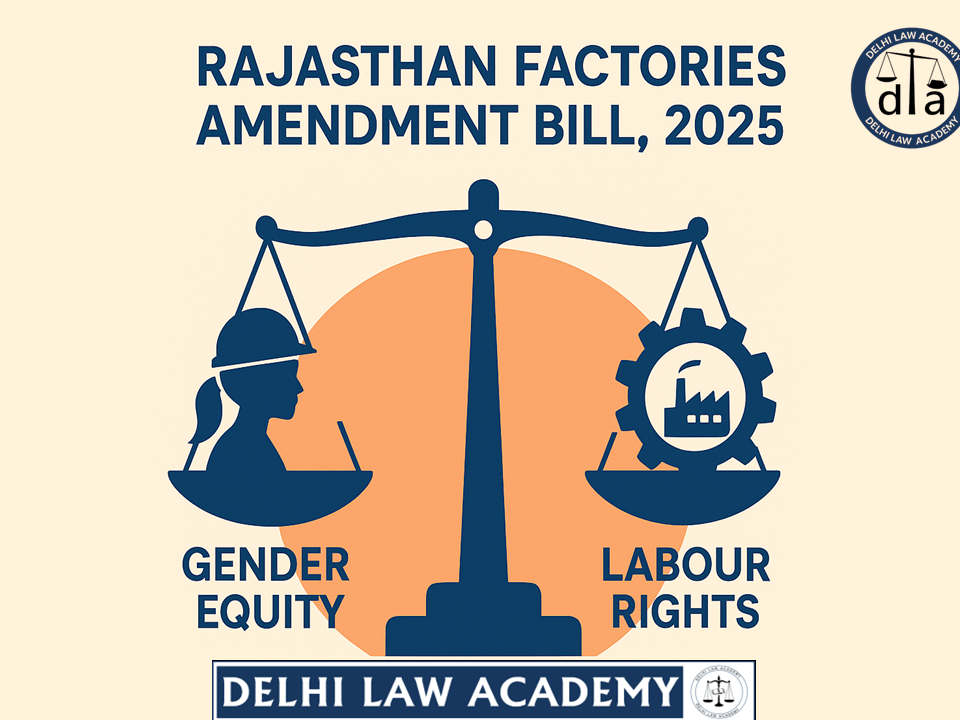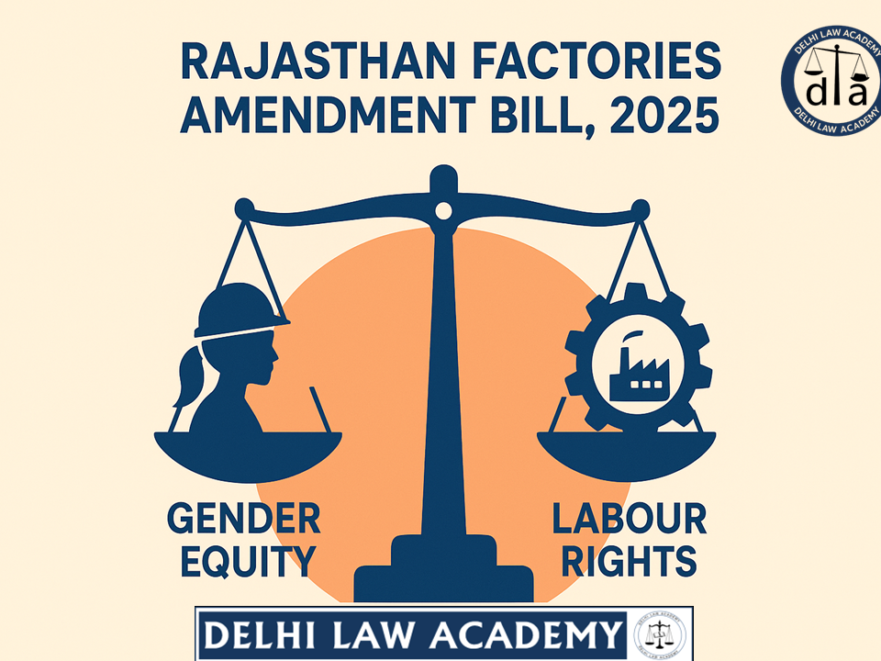
🏭 Rajasthan Factories Amendment Bill 2025: Labour Law, Women’s Safety & Workplace Flexibility
The Rajasthan Factories Amendment Bill, 2025 marks a significant reform in India’s labour law framework.
By allowing women to work night shifts (with consent and safety measures) and introducing flexible working hours,
this bill aims to balance gender equality,
industrial productivity, and worker welfare.
But does it really succeed in striking that balance? Let’s explore.
📜 Background: The Factories Act & Restrictions on Women
The Factories Act, 1948 is the cornerstone of labour law in India, regulating working hours,
safety standards, and welfare measures for factory workers. Traditionally, women were prohibited from
working between 7 PM and 6 AM due to safety concerns.
With globalization and changing industrial needs, several states have pushed for reforms.
The Rajasthan amendment continues this trend by updating laws to match today’s workplace realities.
✨ Key Features of the Rajasthan Factories Amendment Bill, 2025
- 👩🏭 Women in Night Shifts: Women can now work between 7 PM – 6 AM with written consent.
- 🛡️ Employer Responsibility: Companies must ensure transport, security, and workplace facilities for women employees.
- ⏰ Extended Working Hours: Shifts may go up to 12 hours per day, provided weekly limits are maintained.
- 📅 Flexible Scheduling: Employers may adopt flexible weekly shifts to improve operational efficiency.
- ⚖️ Liability: Employers face strict penalties for failure to provide safety measures.
📊 Impact Analysis
✅ Positive Outcomes
- Boosts job opportunities for women in manufacturing and related sectors.
- Encourages gender equality in industrial workforce participation.
- Improves Rajasthan’s image as an investment-friendly state.
⚠️ Concerns
- Safety during night commute remains a challenge, especially outside metro cities.
- Risk of worker fatigue due to extended 12-hour shifts.
- Smaller factories may struggle with compliance and security arrangements.
🌍 Comparative Perspective
Rajasthan joins states like Maharashtra, Karnataka, and Tamil Nadu, which already allow women
to work night shifts with safeguards. Globally, ILO conventions emphasize both
equal employment opportunities and
worker safety.
💬 Criticism & Debates
Labour unions argue that extended hours may exploit workers, while women’s rights groups remain cautious about
safety at night. Industry associations, however, welcome the move for giving businesses more flexibility.
The key question remains: can gender safety and operational efficiency truly go hand-in-hand?
✅ Conclusion
The Rajasthan Factories Amendment Bill, 2025 is a landmark step towards modernizing
labour law and promoting gender equity in the workforce. Its success, however, will depend on
strict enforcement of safety provisions and responsible employer practices.
For law aspirants, this bill is a key case study in labour law, gender equality, and constitutional rights (Articles 14, 15, 16).
Stay updated with more insights on our legal blogs 📰 and
Judiciary Study Material 📚.
❓ Frequently Asked Questions (FAQs)
📚 Further Reading for Law Aspirants
Explore more useful resources from Delhi Law Academy to strengthen your preparation:
Contact us
📍 Delhi Law Academy – Jaipur Branch
6C, Tower 2, Coaching Hub, Pratap Nagar, Jaipur – 302033
📞 Phone:
+91 9911916552
+91 8447285606
✉️ Email:
contactus@delhilawacademy.com

